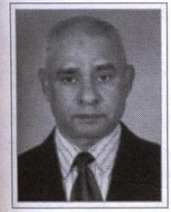ސައޫދީ އަރަބިއްޔާގެ ރީތީގެ ރާނީ
މައުމޫނަކީކަލެއް ކަމަށް ދަޢުވާކޮށް ރައްޔިތުން މަޖިލީހުގެ ނައިފަރު ދާއިރާއަށްކުރިމަތިލާފައިވާ ޑީއާރުޕީގެ ކެންޑިޑޭޓް ދައްކާފައިވާ ވާހަކަތައް.
ޑައުންލޯޑް ކުރައްވާ
ޚަބަރު – އޫރު ރޯގާގެ ވަރަށް ނުރައްކާތެރި ވައި ރަހެއް ފެތުރެމުން އެބަ ދޭ 27 އޭޕްރިލް 2009
މާތްވެގެންވާ އިސްލާމް ދީނަކީ ކާއިނާތުގެ މިލްކުވެރި ރައްބު ﷲ ތަޢާލާގެ ހަޒްރަތުން އިންސީންނާއިން ޖިންނީން މިދުނިޔޭގެ ދިރިއުޅުން ވޭތުކުރަންވީ މަންހަޖެވެ. މި މާތްވެގެންވާ ޝަރީއަތުގައި އެއްވެސް އުނި ކަމެއް ނުވެ އެވެ. އިސްލާމް ދީނުގައި ކަމެއް ވާޖިބް ކޮށް ހަރާމް ކުރައްވާފައިވަނީ މުޅި އިންސާނިއްޔަތުގެ ލާބަޔާ މަންފާއަށް ކަން ކަށަވަރެވެ. އެހެންކަމުން ދީނުގެ ޙުކުމެއް އައުމަށްފަހު ، އެ ޙުކުމަކަށް އަމަލު ކުރުމަށްޓަކައި އޭގެ ޙިކުމަތް ހޯދާބަލާކަށް ނުޖެހެއެވެ. އެއީ ހުއްދަކަމެއްވެސް ނޫނެވެ. ސަބަބަކީ ދީނުގެ ހުކުމްތައްބާވާލެއްވިފައި ވަނީ މީސްތަކުން އިމްތިހާނު ކުރެއްވުމުގެ ގޮތުން ކަމަށްވެފައި ، ﷲ ތަޢާލާ ގެ އަމުރު ފުޅު ތަކަށް ބޯލަބައި ކިޔަމަންވަނީ ކޮންބަޔެއްތޯ ބެއްލެވުމަށް ކަމަށް ވާތީއެވެ. އެހެންނަމަވެސް އެ ޙުކުމަކަށް ޢަމަލު ކުރާ ހާލު ތިމާގެ އީމާންކަން އިތުރު ކޮށްލުމަށް ނުވަތަ އެހެންވެސް ބޭނުމަކަށްޓަކައި ދީނުގެ ޙުކުމެއްގެ ބާވާލެއްވުނު ޙިކުމަތާމެދު ވިސްނާ ފިކުރުހިންގުމަކީ ހުއްދަ ކަމެކެވެ. އެގޮތުން ﷲ ސުބުޙާނަހު ވަތަޢާލާ ވަނީ އަހަރެމެން އިންސާނުންނަށް ޓަކައި އެއިލާހު މަނާކުރެއްވި މަދު ތަކެއްޗެއް ފިޔަވައި ކެއިންބުއިމުގެ ބާވަތްތައް ހަލާލު ކުރައްވާފައެވެ. އެއްގަމު މަހުގެ ތެރެއިންވެސް ހަރާމް ކުރެއްވިފައިވަނީ ވަރަށް މަދު ބާވަތެކެވެ. މި ތަކެތި ހަރާމް ކުރެއްވުމުގައި ވެސް މަތިވެރި ޙިކުމަތެއްވާނޭކަން ކަށަވަރެވެ. މިގޮތުން ބަލާލާއިރު އޫރުމަހަކީ ދީނުގައި ކެއުން ޙަރާމް ބާވަތެކެވެ. މީގައިވެސް ޙިކުމަތެއް ވާނޭކަން ޔަޤީނެވެ. ޖަނަވާރާ ބެހޭ ޢީލްމުގެ ބައެއް ބޭކަލުން ވިދާޅުވާގޮތުގައި އޫރަކީ އޭގެ ޒާތުގައި އެއްވެސް ވަރަކަށް ޣީރަތްތެރިކަމެއް ހުންނަ ޖަނަވާރެއްނޫނެވެ. ކޮންމެ ކަމެއްވެސް ވަރިހަމަ އޭ ބުނާ އުސޫލުން އެއްވެސްގޮތެއްފޮތެއް ނެއް ހަމައެއް ލަމައެއް ނެއް ޖަނަވާރެކެވެ. އެހެންކަމުން އޫރުމަސް އާއްމުގޮތެއްގައި ކައި އުޅޭ މީސްމީހުން ގެ ކިބައިގައިވެސް މި އުސޫލް ހަރުލާކަމަށް ވެއެވެ. ޣީރައްތެރި ކަމެއް ނުހުރެއެވެ. އެމީހުންގެ އަނބިންނާއި ހިލޭފިރިހެނުން ޒިނޭ ކުރިޔަސް އެއީ އެއްވެސް ކަމަކަށްނުވެ އެވެ. މިހާރު އަނެއްކާވެސް ފެންމަތިވެގެން މިއުޅެނީ އޫރު ރޯގާގެ ވަރަށް ނުރައްކާތެރި ވައިރަހެއް ބައެއް ޤައުމުތަކުގައި ފެތުރިގެން އުޅޭ ޚަބަރެވެ. މީގެ ސަބަބުން މިހާތަނަށް 81 މީހުން ވަނީ މަރުވެފައެވެ. ތަފްސީލް ބެއްލެވުމަށް މި ތަނަށް ކްލިކް ކޮށްލާ.
Are Western democracies really democratic?
އިސްލާމީޢަޤީދާ ވަރުގަދަކުރުމަށް ހުޅުވުނުދޮރު ބަންދުވުމުގެ ރަނގަބީލު ޖަހަންފެށީބާ
ހައްޤްބަސް ނުބުނުމުގެ ސަބަބުން ﷲ ސުބްޙާނަހު ވަތަޢާލާ، ސްޓޭޓް މިނިސްޓަރ ޝަހީމް ފަޟީހަތް ކުރައްވަނީ
ދިވެހި ސަރުކާރުން އެއްވެސް ހައްޤަކާ ނުލައި ރާއްޖެ އިސްލާމް ވެބްސައިޓް ބްލޮކް ކޮށްލާފި
ވަޒީފާ ގެއްލިފައިވާ މީހަކު އޭނާގެ އަނބިމީހާއާ 5 ކުދިން މަރާލައިފި
Child casualties of Israel's war on Gaza
Abdul Rahim Abu Halima, 14, was killed when his home was hit by an Israeli white phosphorus artillery shell in Atatra, in north-eastern Gaza, on 4 January. He died along with two of his brothers, Zayed, eight, and Hamza, six, his sister Shahed, who was 15-months-old, and their father, Saad Allah, 45, who was sheltering them in his arms in the hallway when the shell struck. The inside walls of the house are still blackened and pieces of shrapnel and shell casing are spread across the hallway beneath a gaping hole in the roof. "He was a very active boy, a little bit nervous sometimes, but he was good at football," said his brother Mahmoud, 20. "He played with the neighbours and was in a team at school. We shared a room together and he was always trying to get me out of there. I loved him so very much. He was a wonderful boy."
Mohammad Abu Halima, 16, a cousin of Abdul Rahim, was shot dead by Israeli troops as he tried to take his injured relatives from the burning house in Atatra to hospital on 4 January. He was in the house next door when the shell struck and ran to try to help another cousin, Matar, loading up the injured on the back of a tractor. Both boys were killed. "He was still at school," said his father, Hikmat, 42. "He wanted to go abroad after school to study at university. He was a quiet boy, very obedient and did whatever I asked him." Many of the houses in Atatra were left burnt out or destroyed. "They came in here as if they were fighting a country like America," said Mohammad's aunt, Suhaida. 40. "But we're not fighters, just civilians. We're only Gaza."
The Abu Eisha family At about 1am on 5 January, an Israeli air strike hit the house of the Abu Eisha family in Gaza City. The missile dropped through the top floors of the house, detonating on the first floor where most of the family was sleeping. Among the dead were Ghaida, eight, and her brothers, Mohammad, 10, and Sayyd, 12. The survivors spent a long time searching in the darkness using only the lights from their mobile phones until they found the bodies lying in rubble outside the house. Their parents died alongside them. Saber Abu Eisha, 49, the children's uncle, was in the basement with about 24 others from the family, who all survived. "Ghaida was in the second grade at school. She was like any little girl, she was pretty, she loved to play. Sometimes she was laughing, sometimes she was crying," said her uncle. "She liked to dress up, wearing a bride's dress, showing off. Her brother Mohammad was always fixing bicycles and Sayyd used to talk about how he wanted to be a pilot." The family was not wealthy: their father once worked as a labourer in Israel but had been unemployed or an occasional taxi driver for many years. He and his brothers had been building the only part-finished family house for the last 20 years.
The Abu Eishas still cannot understand why their house was targeted, except that there are open areas nearby where militants have launched rockets in the past. Several other houses nearby were also badly damaged in the war. "It's all a result of political failure," said Saber. Two children from the family survived: Dalal, 12, and Ahmed, five. Both are deeply traumatised. "Whenever they hear a loud noise, they fall to the ground," said Saber. "Sometimes I think it's easier for the people who are dead and it's harder for those who are living."


